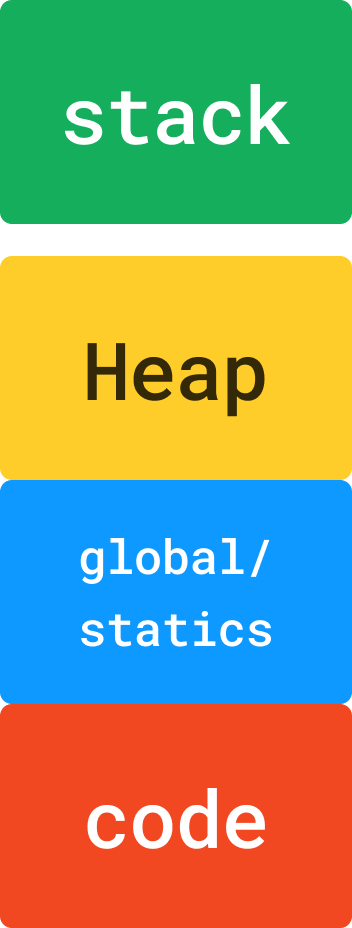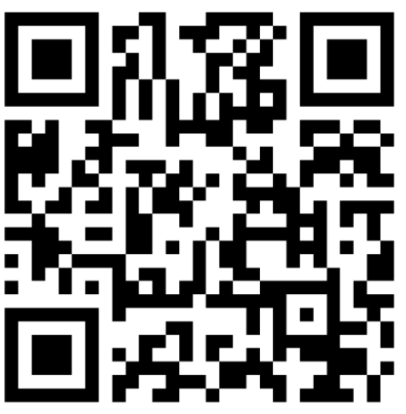Week 1 Lecture 2
Variables and Constants
So far
- Welcome and introductions
- Getting started
Today
- Memory
- Data (variables + constants)
- Expressions
A brief recap
Out first program
#include <stdio.h>
int main(void) {
printf("Hello, world\n");
return 0;
}
How do computers store data?
How do computers store data?
- Computers are electrical
- Electricity is either flowing, or not
- We store electrical charge (or lack thereof) in a large number of on-off switches
- We call these switches "bits" (the smallest possible unit)
0or1
How do computers store data?
- Alone, a single bit can't do much...
- What if we group them together?
Activity - Spell your name
| Letter | Binary Sequence | Letter | Binary Sequence |
|---|---|---|---|
| A | 00000 | B | 00001 |
| C | 00010 | D | 00011 |
| E | 00100 | F | 00101 |
| G | 00110 | H | 00111 |
| I | 01000 | J | 01001 |
| K | 01010 | L | 01011 |
| M | 01100 | N | 01101 |
| O | 01110 | P | 01111 |
| Q | 10000 | R | 10001 |
| S | 10010 | T | 10011 |
| U | 10100 | V | 10101 |
| W | 10110 | X | 10111 |
| Y | 11000 | Z | 11001 |
01001 00000 01010 00100
By agreeing on what a sequence of 0s and 1s means, we can store and retrieve data!
Where can we put all these bees bits?
Different types of memory
- RAM (memory)
- this is mostly what we care about in 1511
- HDD/SDD (persistant data)
- Tapes?
Different types of memory too

Whiteboard
Q: How do we use memory in our programs?
A: Variables
- A label for a piece of memory
- "variable" because the value in memory can change
- A certain number of bits required to store that data type
- Stores a specific type of data
To make a variable, you need:
- It's type
- It's name
Some data types
int-> an integer, a whole number (1, -5, 100)char-> a single character ('a', 'V', ' ')double-> a floating point number (3.14159)
Each type has different memory requirements
int-> 32 bits in C, 4 byteschar-> 8 bits, 1 bytedouble-> 64 bits, 8bytes
And therefore limits...
int->-2,147,483,648to2,147,483,647char->-128to127charsdouble->-2,147,483,648to+2,147,483,647
Variable names
- Surprisingly important...
- Should describe what it's storing
- You can pick whatever you want (mostly)
- in C, always use lowercase letters
nameis different tonAme
- seperate words by underscores
first_name
Naming variables is an art... COMP1531 goes into more detail
int
- A whole number, with no fractions or decimals
- Most commonly uses 32 bits (which is also 4 bytes)
- This gives us exactly 2 different possible values
- Exact ranges from -2147483648 to 2147483647
char
- A char type is used to store a single character
- chars have to be wrapped in single quotes, like: 'a'
- Each char is associated with an integer
- We can convert chars to ints, and back
- 'a' and 'A' are different characters!
- chars are just ints under the hood...
double
- A double-sized floating point number
- A decimal value - "floating point" means the point can be anywhere in the number
- Eg: 10.567 or 105.67 (the points are in different places in the same digits)
- It’s called "double" because it’s usually 64 bits, hence the double size of our integers (or 8 bytes)
Variables syntax
To declare a variable, you use:
<type> <name>;
int age;char first_initial;double pi
Demo
#include <stdio.h>
int main(void) {
// declare an int.
int my_age;
// assign a value to the int.
my_age = 25;
// whoops, I wish... let's update
my_age = 28;
return 0;
}
OK we can store some data... so what?
Printing variables using printf
- We can print variables to our terminal!
- We describe the format of how we want text printed, then the actual values.
- To print out a variable value, we use format specifiers with
printf
The format specifier (%) indicates WHERE a value will output within the format string.
int my_age = 13; printf("I am %d years!", my_age);
The format specifier must match the data types passed
%cfor chars%dfor ints “decimal integer”%lffor “long floating point number” (a double)printfneeds to know what type it should expect in what order, because...
You can have multiple variables:
int diameter = 5;
double pi = 3.141;
printf("The diameter is %d, pi is %lf", diameter, pi);
Demo
Break - lecture feedback

writing 🤝 reading
scanf
- Scan Formatted
- Reads input from the user in the same format as printf
- Format specifiers
%d,%lf,%care used in the same way - The
&symbol tells scanf where to store the data (more details later in term)
#include <stdio.h>
int input;
printf("Please enter your age: ");
scanf("%d", &input);
Demo
A bit more on scanf
scanf("%d", &my_int);
scanf("%c", &my_char);
- scanning an int ignores whitespace
- scanning a char does not ignore whitespace
- We can ignore leading whitespace with chars:
scanf(" %c", &character);
Constants
- A value that will never change
- More efficient to store a constant (less memory)
- Different syntax
- We use UPPERCASE to signify it's a constant
#define <NAME> <value>
#define PI 3.1415
Using variables in expressions
A lot of arithmetic operations will look very familiar in C
- adding
+ - subtracting
- - multiplying
* - dividing
/ - These will happen in their normal mathematical order
- We can also use brackets to force precedence
int age = 28;
int current_year = 2023;
int year_born = current_year - age;
printf("You were born in %d", year_born);
chars are just ints playing dress-up
char letter = 'b';
letter = letter + 1;
printf("%c\n", letter);
^^ Will print 'c'
Don't forget your limits
If we add two large ints together, we might go over the maximum value, which will actually roll around to the minimum value and possibly end up negative
- (Check out Ariane 5 explosion), a simple error like this caused a rather large problem: https://www.bbc.com/future/article/20150505-the-numbers-that-lead-to-disaster)
- Boeing 787 had to be rebooted every 248 days (231 -hundredths of a second)
- https://www.engadget.com/2015-05-01-boeing-787-dreamliner-software-bug.html
- In a less destructive example, the video Gangham Style on YouTube maxed out the views counter : https://www.bbc.com/news/world-asia-30288542
Doubles :(
- No such thing as infinite precision
- We can’t precisely encode a simple number like ⅓
- If we divide 1.0 by 3.0, we'll get an approximation of ⅓
- The effect of approximation can compound the more you use them
Remember that C thinks in data types
- If either numbers in the division are doubles, the result will be a double
- If both numbers are ints, the result will be an int, for example, 3/2 will not return 1.5, because ints are only whole numbers
- ints will always drop whatever fraction exists, they won’t round nicely, so 5/3 will result in 1
- There's ways around all of this...